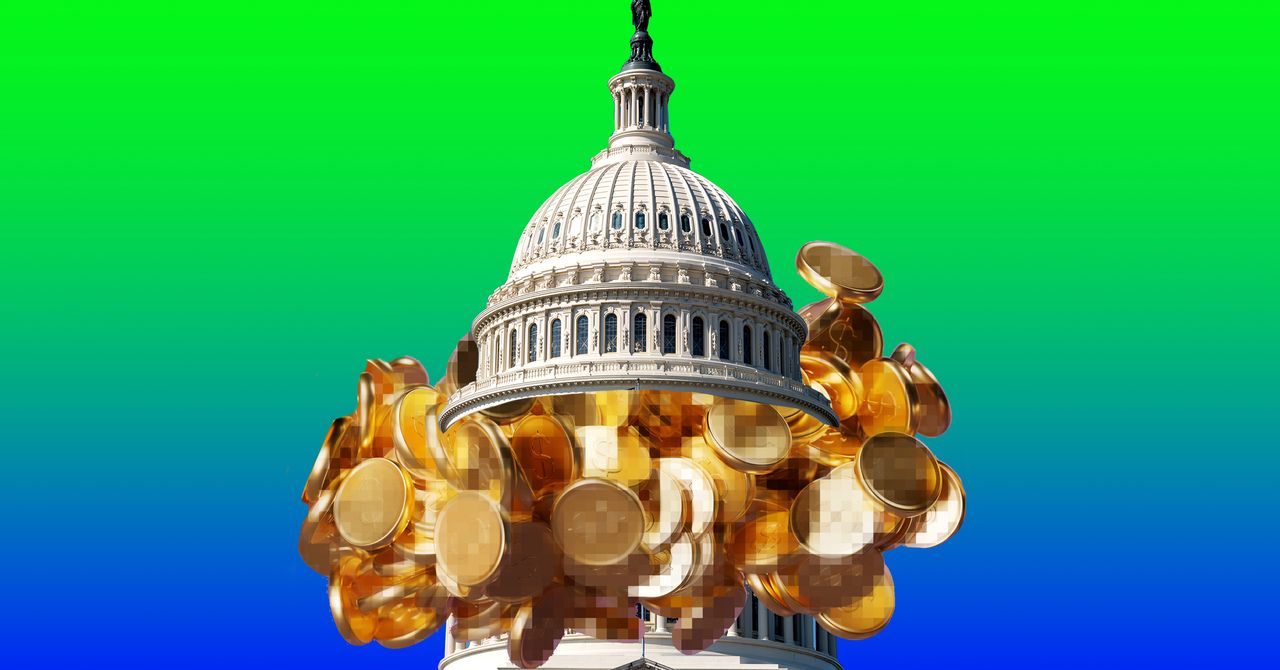“Competition will be fierce,” says Christian Catalini, founder at MIT Cryptoeconomics Lab and co-creator of Diem, the now-defunct stablecoin project funded by Meta. “You will see many more issuers enter the market and compete. Many of those issuers will be more traditional banks and fintechs.”
Crypto advocates argue that stablecoins will strengthen the US Dollar as the global reserve currency by increasing demand in developing countries with unstable economies, and allow the US to borrow more cheaply by juicing demand for government bonds. “You couldn’t come up with a better innovation for the greenback on a whiteboard,” says Christopher Perkins, president at crypto VC firm CoinFund.
However, a stablecoin proliferation could destabilize the financial system if regulators fail to maintain proper oversight, critics have warned. If, for example, a major issuer were to fatally mismanage a stablecoin reserve, leading to a collapse in the coin’s value and a potential run on other stablecoins, the value of US government bonds could tumble as issuers are forced to liquidate their reserve assets to cover redemptions, and taxpayers could find themselves on the hook for bailouts.
“I am very wary of steps to basically integrate privately-issued currency further into the financial system. At bottom, that’s what this represents,” says Jacob Silverman, coauthor of the book Easy Money: Cryptocurrency, Casino Capitalism, and the Golden Age of Fraud.
Another common objection to the GENIUS Act relates to the absence of any provisions that would prevent Trump and his family from profiting by their own stablecoins.
In May, World Liberty Financial announced that its USD1 stablecoin would be used by investment firm MGX, which is funded by the United Arab Emirates, to make a $2 billion investment in Binance, the world’s largest crypto exchange. The Trump-affiliated firm could earn tens of millions of dollars from the deal, which sparked complaints among critics who claimed the transaction amounted to “foreign policy for sale.”
“By passing the GENIUS Act, politicians are blessing the corruption of President Trump,” claims Silverman. “We want to protect consumers, but I don’t think [crypto] should be further legitimized in the US until the situation with Trump’s crypto corruption and the Republican Party is resolved.”
The White House did not respond to a request for comment.
Yet, when the House came to vote on Thursday, even lawmakers who had previously objected to Trump’s crypto entanglements—among them Democrat congressman Sam Liccardo, who in February introduced legislation meant to prevent elected officials from profiting by their own crypto coins and certain other assets—lined up behind the GENIUS Act.
“Whether there is a congressional seal of approval or not, it is obvious that the Trump memecoin scheme and now stablecoin scheme appear to be uninhibited by any concerns that people might have,” claims Liccardo. “Even if we got exactly the language that I wanted into this bill to prohibit Trump, we don’t have a Department of Justice that is ever going to prosecute this president or anyone around him for violating that law,” he adds.
The DOJ did not respond to a request for comment.
By Liccardo’s estimations, though the GENIUS Act might be imperfect, the urgent need to rein in the “wild west” stablecoin market demanded a calculated compromise.
“If we pass nothing, we continue to have great uncertainty about who can regulate and how,” says Liccardo. “I see this as not wanting to make the perfect the enemy of good.”



